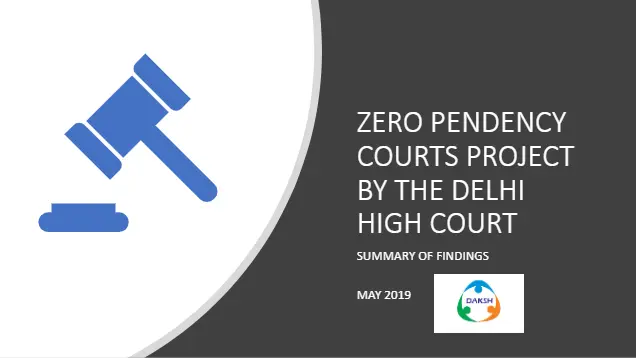
News and Events
https://www.youtube.com/watch?v=upxMYrc4KrE&t=3s
Report On Zero Pendency Project of Delhi High Court Released, Live Law, 12 May 2019
Bengaluru-based NGO aids Delhi HC to study court delays, Deccan Herald, 10 May 2019
Capital needs 43 more judges to clear pending cases in 1 year, The Hindu, 6 May 2019
Delhi: How courts can cut down on pending cases, The Times of India, 4 May 2019





